Pope Francis Addresses Jesuit Educators
On May 28, 2024, Pope Francis delivered a powerful message to a global assembly of Jesuit educators at the Jesuit Global Network of Schools (JGNS) conference. The event, which took place at the Pontifical Gregorian University in Rome, was attended by over 300 educators from 70 countries. His Holiness emphasized the indispensable role of Jesus in guiding the mission of Jesuit education. The theme of the conference, 'Transforming the World: Jesuit Education in the 21st Century,' brought to light essential issues faced by educators in a rapidly changing world.
The Tradition of Jesuit Education
During his address, Pope Francis praised the longstanding tradition of Jesuit education. He highlighted its well-known commitment to the pursuit of knowledge, care for the whole person, and the promotion of social justice. Jesuit institutions have always been at the forefront of academic and moral development, fostering environments where students can grow intellectually and ethically. The Pope underscored that this tradition is more relevant than ever, urging educators to inspire critical thinking, creativity, and a sense of responsibility in their students.
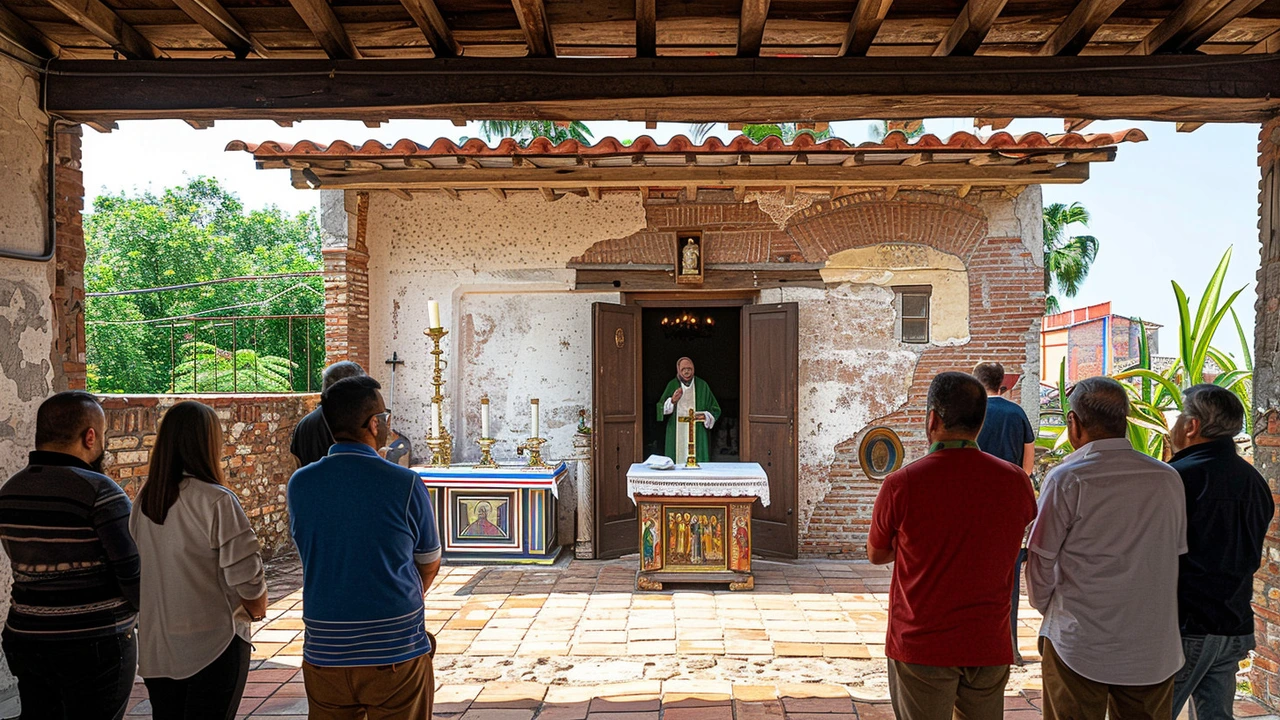
Maintaining Catholic Identity
One of the core messages of Pope Francis's speech was the importance of Jesuit schools maintaining their Catholic identity. He highlighted that while it is essential to stay rooted in Catholic values, Jesuit institutions should also remain open to dialogue with other cultures and religions. This balance can enrich the educational experience and promote a more inclusive and comprehensive understanding of the world. The Pope encouraged educators to embrace this mission with open hearts and minds, promoting a spirit of unity and respect across diverse cultures.
Encouragement to Educators
The Pope expressed his immense gratitude for the Jesuit Order's dedication to education. This commitment is evident in the long history of Jesuit-established schools and universities, which have become symbols of excellence and innovation in education. He inspired the educators present to carry forward this legacy, emphasizing the crucial role they play in shaping future generations. With his words of encouragement, Pope Francis reignited their passion for their mission, reinforcing the idea that every educator has a significant impact on the world through their work.
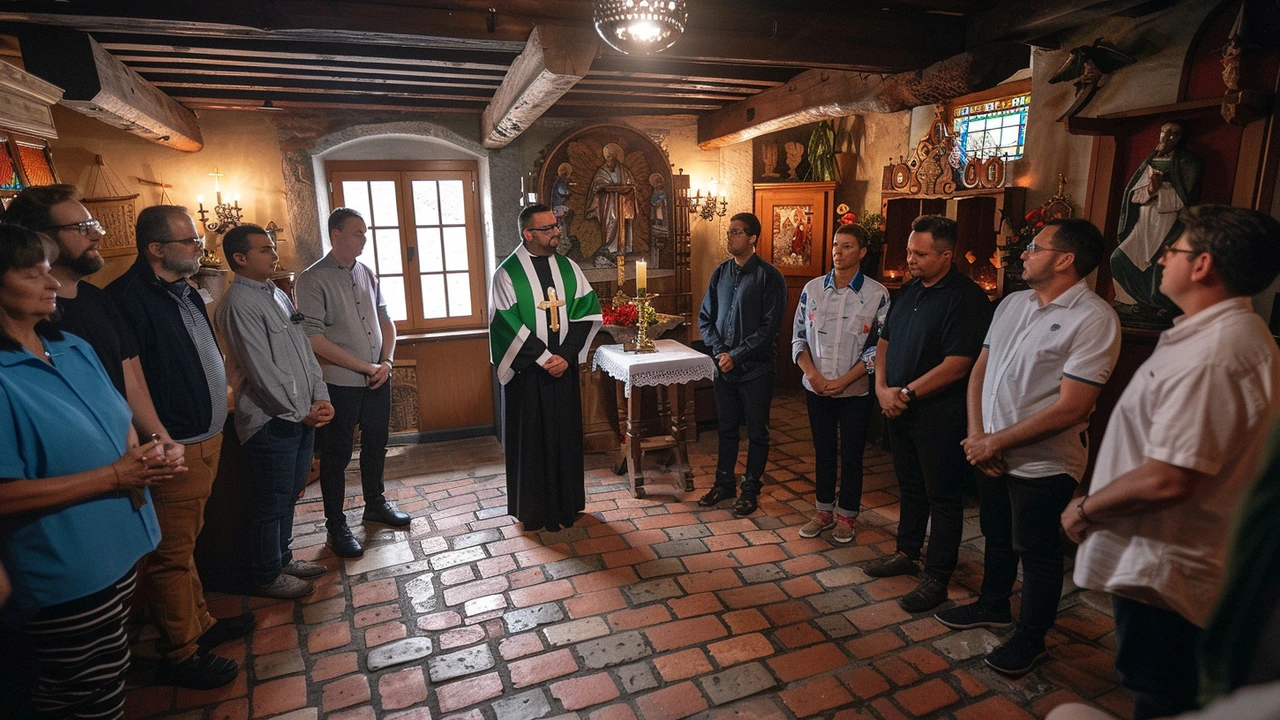
A Reflection on Social Justice
Pope Francis's speech also delved into the importance of social justice within Jesuit education. He urged educators to instill a deep sense of social responsibility in their students, encouraging them to become agents of change in their communities. The Jesuit commitment to social justice aligns with the Catholic Church's broader mission of serving the marginalized and working towards a more equitable society. Pope Francis's reflections on this topic resonated deeply with the educators, many of whom have dedicated their careers to promoting justice and equality through education.
The Global Impact of Jesuit Education
The JGNS conference served as a reminder of the global impact of Jesuit education. With representatives from 70 countries, the event showcased the diversity and reach of Jesuit institutions worldwide. The Pope's address highlighted the importance of this global network, calling on educators to share best practices and support each other in their common mission. This sense of global solidarity is crucial in addressing the universal challenges faced by educators today, from technological advancements to social and cultural shifts.
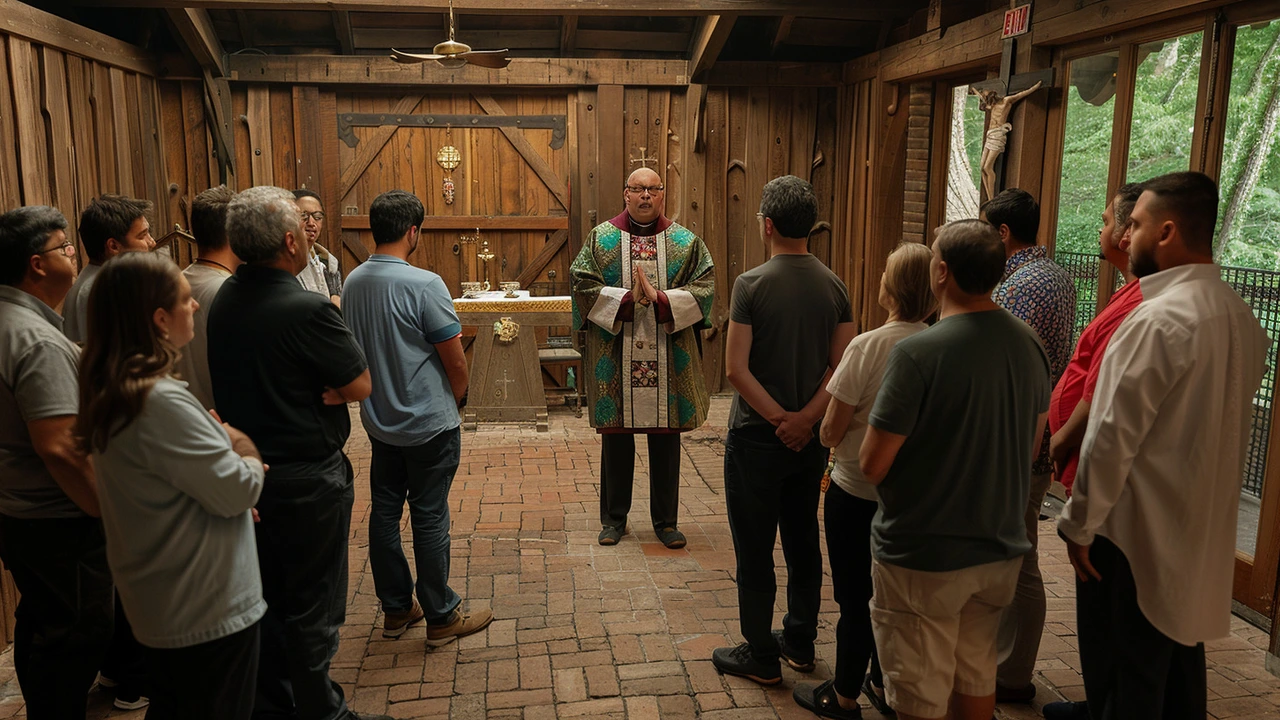
The Future of Jesuit Education
Pope Francis's speech also looked to the future, encouraging Jesuit educators to adapt to the evolving needs of their students and society. He stressed the importance of innovation and flexibility in education, urging institutions to embrace new methodologies and technologies while staying true to their core values. The Pope's vision for the future of Jesuit education is one of dynamic growth and adaptation, ensuring that it remains relevant and impactful in the 21st century.
The conference closed with a renewed sense of purpose among the educators, inspired by Pope Francis's words. The assembly's applause and gratitude reflected their commitment to continue providing quality education grounded in Jesuit values. As they returned to their respective countries, these educators carried with them a reinforced dedication to their mission, ready to transform the world through their work.

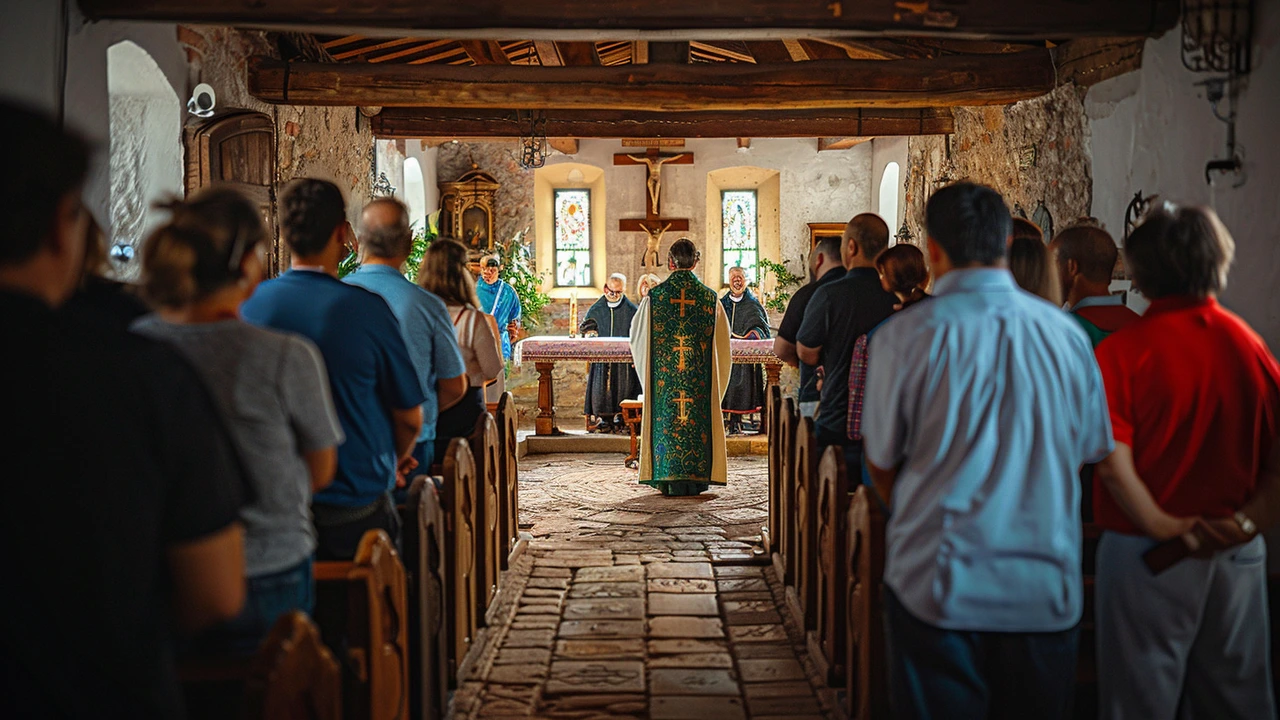




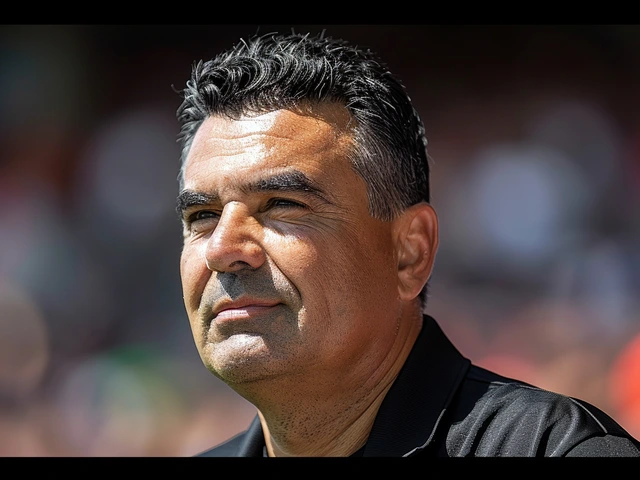
10 Comments
Jesuit schools have always tried to blend rigorous academics with a genuine care for the whole person. The Pope’s reminder to keep Jesus at the center can be a useful compass for curriculum designers. One practical step is to weave service projects directly into subject lessons, so students see faith in action. Another is to encourage reflective journals that ask learners how their studies connect to social justice. By doing this, teachers turn abstract doctrine into lived experience. This approach respects the tradition while speaking to today’s diverse classrooms.
Interesting point about tradition and innovation – keep both alive in the classroom.
The push to center Jesus can feel like a double‑edged sword for educators walking the tightrope between faith and modernity. While many laud the Pope’s call as a return to roots, I suspect it might also cast a shadow over the pluralistic dialogue that thrives in today’s campuses. Imagine a lecture hall where a single theological lens muffles the cacophony of diverse perspectives – the very vibrancy that Jesuit pedagogy once prized. Moreover, the emphasis on “mission” sometimes translates into top‑down mandates that stifle grassroots innovation. A truly Jesuit spirit, I argue, is less about uniform creed and more about the restless questioning of every assumption. By framing Jesus as the sole hub, we risk eclipsing the broader quest for truth that includes philosophy, science, and art. Still, the Pope’s heart beats for justice, and that cannot be dismissed outright. Perhaps the challenge lies in honoring the figure of Christ while keeping doors ajar for every earnest seeker.
Oh, what a profound misreading, dear colleague! You claim that centering Jesus dims pluralism, yet you ignore the luminous thread that has always bound Jesuit scholars to the Gospel’s call for justice, compassion, and critical inquiry!!! The very act of grounding education in Christ does not close doors – it opens them to a higher moral horizon, a compass that guides ethical reasoning across disciplines!!! Let us not mistake a steadfast moral center for intellectual tyranny; rather, let us celebrate how a shared faith can amplify diverse voices, not silence them!!!
Sure, because adding more exclamation points automatically makes the argument deeper, right?
The Pope’s message strikes a bold chord in a world that often dilutes core values for the sake of convenience. Jesuit schools must stand firm, not as rigid dogmatists, but as dynamic communities where faith fuels action. Ignoring the call to center Jesus would betray the very essence of the order’s mission to serve the marginalized. Let’s translate that conviction into curricula that challenge privilege and inspire solidarity. The urgency is real, and the time to act is now.
Esteemed colleagues, the call to integrate Jesus at the heart of our pedagogical mission invites us to re‑evaluate institutional priorities. By aligning academic excellence with compassionate service, we produce graduates equipped for moral leadership. I encourage each of you to convene interdisciplinary workshops that explore this synthesis. Together, we can forge a future where faith and reason coexist harmoniously.
When the Pope talks about centering Jesus, he is not merely issuing a theological reminder but broadcasting a cultural shift that ripples through every classroom wall.
Jesuit education has always been a crucible where faith meets reason, and that crucible is being reheated at a global scale.
First, the very notion of a single focal point forces administrators to reconsider how mission statements are drafted, moving them from vague aspirational slogans to concrete, Christ‑centered objectives.
Second, faculty hiring practices will inevitably tilt toward candidates who can demonstrate both scholarly rigor and a lived commitment to the Gospel.
Third, curriculum design must now embed the concept of the Incarnation not as a footnote but as an analytical lens through which history, literature, and science are examined.
Students will be asked to trace how the moral imperatives of the Beatitudes resonate with modern environmental policy, for example.
Such integration does not dilute academic freedom; instead, it expands the horizon of inquiry by anchoring it in universal human dignity.
Critics who fear indoctrination overlook the fact that every educational tradition implicitly carries a worldview, whether secular or sacred.
By making that worldview explicit, Jesuit schools can model transparency and invite genuine dialogue.
Moreover, the global network of Jesuit institutions provides a platform for cross‑border collaboration, sharing best practices that honor local cultures while upholding a shared spiritual core.
Technologically, this means leveraging digital twin classrooms that stream liturgical reflections alongside STEM labs, creating a lived rhythm of prayer and experiment.
Administratively, budget allocations must reflect this dual mission, earmarking funds for community service projects that embody Christ’s preferential option for the poor.
The Pope’s exhortation also challenges us to reconsider assessment metrics, rewarding not only test scores but also demonstrable empathy and civic engagement.
In doing so, we cultivate graduates who are not just employable, but capable of reshaping societies toward greater equity.
The stakes are high, because the erosion of moral anchors in education has already contributed to rising individualism and social fragmentation.
Therefore, embracing a Jesus‑centered paradigm is both a spiritual duty and a pragmatic strategy for sustainable societal transformation.
Love the vision, keep the momentum going! 😊
I appreciate the comprehensive roadmap you’ve delineated, and I would like to augment it with a systems‑thinking perspective that acknowledges the interdependence of pedagogical variables.
From a constructivist epistemology, embedding Christocentric narratives within disciplinary frameworks can serve as an affective anchor, thereby enhancing cognitive schema integration.
Empirical studies in educational psychology demonstrate that when learners perceive personal relevance-such as moral imperatives derived from the Gospel-they exhibit heightened intrinsic motivation and deeper metacognitive processing.
Consequently, the proposed digital twin classrooms should incorporate multimodal feedback loops, where reflective journaling interfaces are synchronized with performance analytics dashboards.
Furthermore, aligning budgetary streams with the preferential option for the poor necessitates a fiscal impact assessment, utilizing cost‑benefit modeling to quantify social return on investment.
In terms of assessment reform, we might consider a dual‑modality rubric that blends Bloom’s taxonomy with servant‑leadership competencies, thereby capturing both cognitive outcomes and ethical dispositions.
Such a rubric can be operationalized through portfolio evaluations, which triangulate quantitative grades with qualitative narratives of community engagement.
Finally, the transnational Jesuit network offers a fertile ground for longitudinal comparative research, enabling us to parse cultural mediators that modulate the efficacy of a Jesus‑centered curriculum across diverse sociopolitical contexts.
By embedding these analytic layers into our strategic planning, we not only honor the Pope’s exhortation but also generate actionable intelligence that can inform policy advocacy at the institutional and governmental levels.